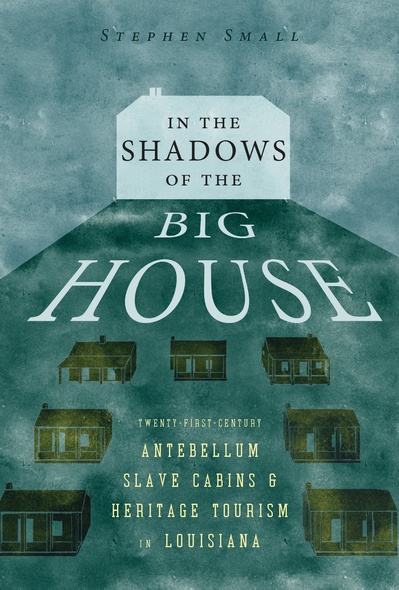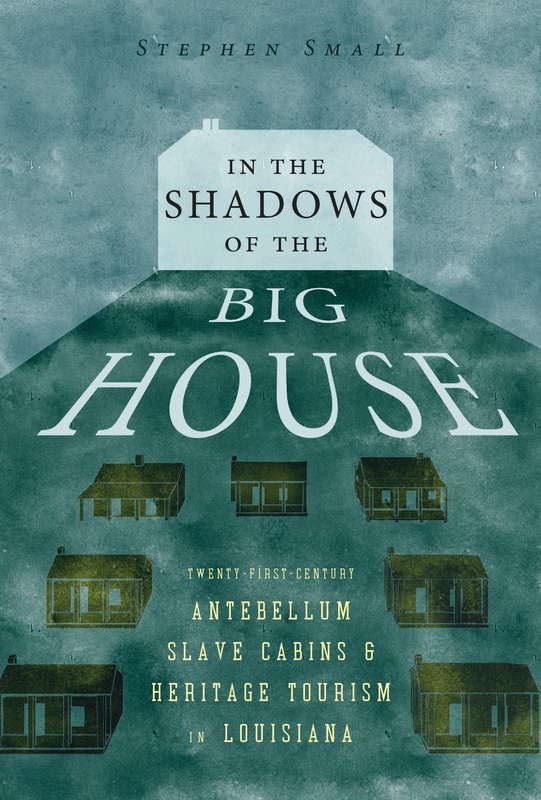
In the Shadows of the Big House
Twenty-First-Century Antebellum Slave Cabins and Heritage Tourism in Louisiana
In the midst of calls for the removal of Confederate monuments across the South, tens of thousands of museums, buildings, and other historical sites currently comprise a tourist infrastructure of the southern heritage industry. Louisiana, one of the most prominent and frequently visited states that benefit from this tourism, has more than sixty heritage sites housed in former slave plantations. These sites contain the remains, restorations, reconstructions, and replicas of antebellum slave cabins and slave quarters. In the Shadows of the Big House: Twenty-First-Century Antebellum Slave Cabins and Heritage Tourism in Louisiana is the first book to tackle the role, treatment, and representation of slave cabins at plantation museum sites in contemporary heritage tourism.
In this volume, author Stephen Small describes and analyzes sixteen twenty-first-century antebellum slave cabins currently located on three plantation museum sites in Natchitoches, Louisiana: Oakland Plantation, Magnolia Plantation Complex, and Melrose Plantation. Small traces the historical trajectory of plantations and slave cabins since the Civil War and explores what representations of slavery and slave cabins in these sites convey about the reconfiguration of the past and the rearticulation of history in the present. Considering such themes as the role of white ethnic identity in representations of elite whites and the extent and significance of Black voices and Black visions of representations of these plantations, Small asks what these sites reveal about social forgetting and social remembering throughout Louisiana and the South. He further explores the ways that gender structures the social organization of current sites and the role and influence of the state in the social organization and representations that prevail today.
In the Shadows of the Big House: Twenty-First-Century Antebellum Slave Cabins and Heritage Tourism in Louisiana is a fine contribution to the literature on plantation museums and tourism, pushing forward questions about more wholly representing Black stories and experiences in the pre– and post–Civil War US South.
Readers interested in how the tourism industry and public memory of the Civil War have developed will find In the Shadows of the Big House worth reading… This is an area ripe for study—in a moment when there seems to be increasing opportunity for academic and public historians to work together to advance popular understanding of history. This well-written and thoughtful book is an excellent start.
In the Shadow of the Big House engages in an important discussion about changes in heritage tourism at plantation museums in a region that has received less study than other areas of the US South. Through the production and reproduction of historical narratives, provided especially through interpretation and exhibit text, this book explores how the inclusion of cabins and other places the enslaved lived and slept is not enough to elevate the voices of Black men and women whose stories have been marginalized in such spaces, preventing a full narrative from being presented to visitors (even if they may be reluctant to hear it). In the Shadow of the Big House is a contribution to the research on plantation tourism that will be beneficial to scholars and public historians, especially those working to explore the possibilities of going beyond basic inclusion and aim to truly elevate the 'Black voices and Black visions' that shape our memory landscapes.
Stephen Small focuses on a region that has fascinating and unique stories to tell, and with his commitment to Black voices and, equally vital, Black visions, he conveys a simple yet complex message: the integration of the slave’s experience into the preservation of these historical sites is an ongoing struggle and one that preoccupies heritage tourism, particularly within the American South and pointedly within an era of protest and re-examination.
If you are interested in how the enslaved are represented, but more importantly presenced—made visible—at plantation museums, then this is the book for you.
Stephen Small is professor in the Department of African American Studies at the University of California, Berkeley. His most recent book is 20 Questions and Answers on Black Europe. He is coauthor of Representations of Slavery: Race and Ideology in Southern Plantation Museums and coeditor of Global Mixed Race,New Perspectives on Slavery and Colonialism in the Caribbean, and Black Europe and the African Diaspora.





